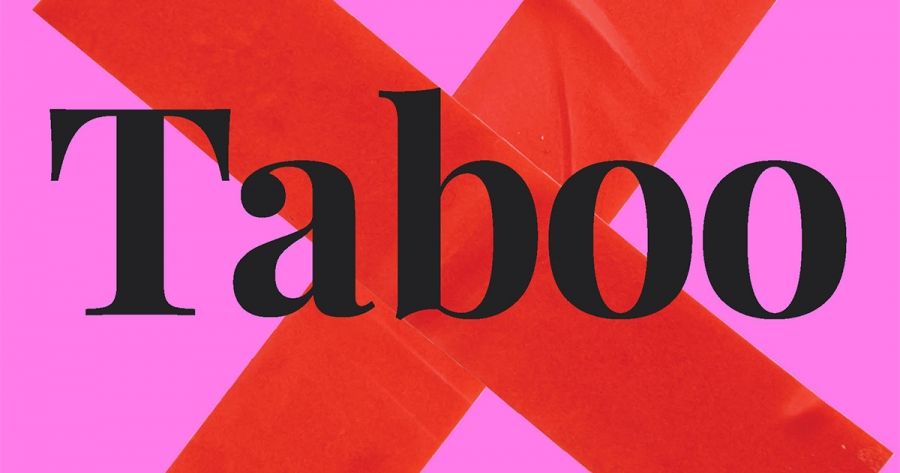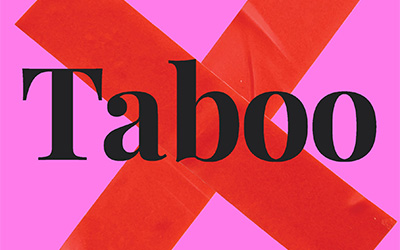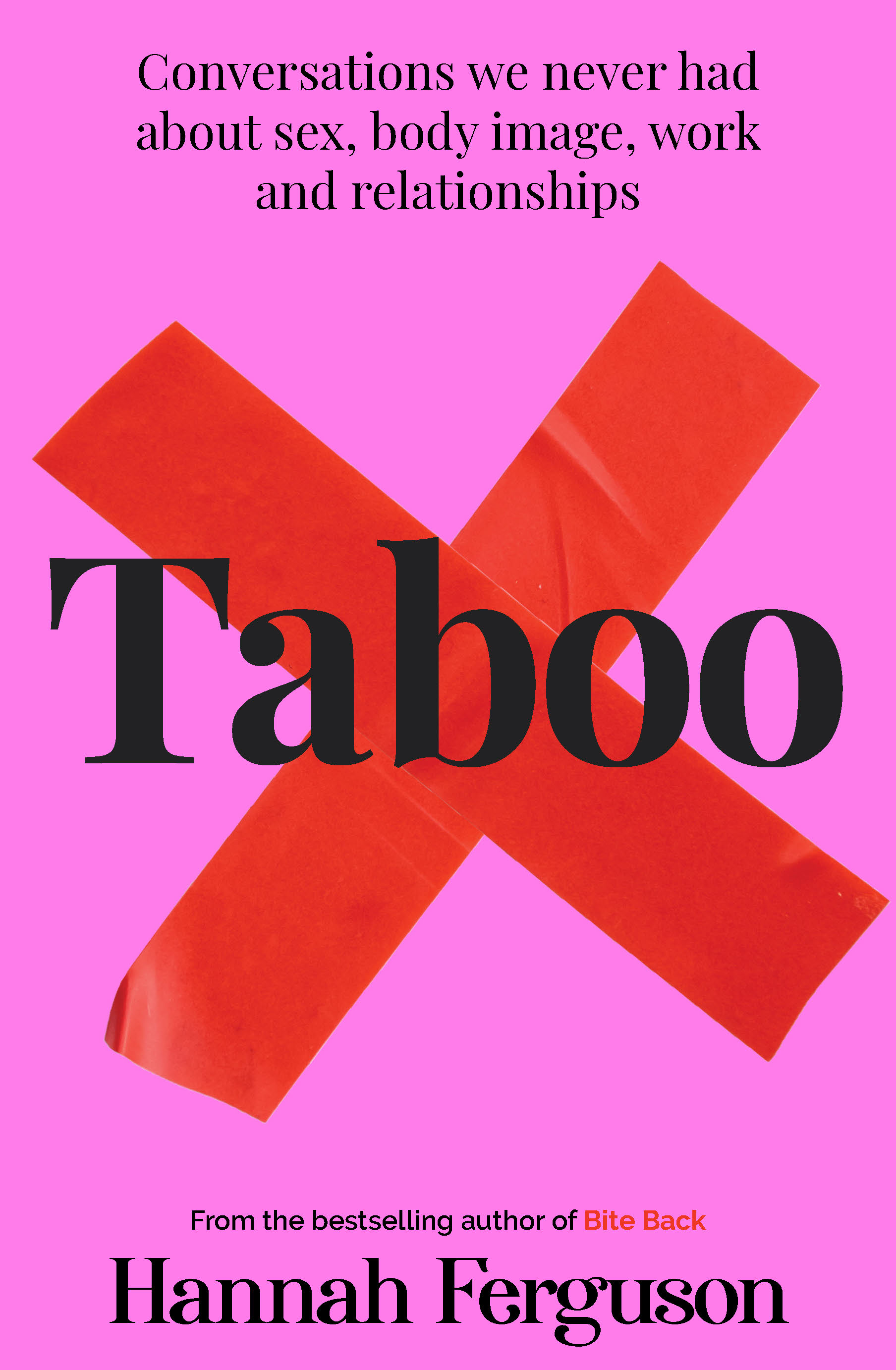
- Free Article: No
- Contents Category: Gender
- Review Article: Yes
- Article Title: Black holes
- Article Subtitle: Subjects clouded in stigma
- Online Only: No
- Custom Highlight Text:
For Hannah Ferguson, the real meaning of a taboo is ‘a conversation which frays the fabric of patriarchy. A subject clouded in stigma which serves systems and institutions of power.’
- Featured Image (400px * 250px):

- Alt Tag (Featured Image): Phoebe Cannard-Higgins reviews ‘Taboo’ by Hannah Ferguson
- Book 1 Title: Taboo
- Book 1 Biblio: Affirm Press, $34.99 pb, 288 pp
- Book 1 Cover Small (400 x 600):

- Book 1 Cover (800 x 1200):

- Book 1 Readings Link: https://www.readings.com.au/product/9781923046634/taboo--hannah-ferguson--2024--9781923046634#rac:jokjjzr6ly9m
There is an interesting conundrum at play here, the collision of ‘likes’ on social media (not to be undervalued, though – Ferguson makes her living from them) and her personal values, ethics, and the principles of feminism which she strives to uphold. Are they compatible?
Bri Lee – author, journalist, and activist – has argued that although she must bend to the strictures of the algorithm to be seen, she is doing important work. ‘I’ve never met someone with a decade of experience at a women’s legal service who also had 50,000 followers they could instantly mobilise to sign a parliamentary petition,’ she writes in an article for Elle magazine, ‘Are Influencers the New Public Intellectuals?’
A panel discussion that Ferguson took part in with Lee led her to take her own work more seriously. In Taboo, she muses on what it means to be an influencer: ‘In fact it is one of the most powerful positions a person can acquire in the age of social media.’ It is evident that Ferguson is trying to use her power for good. She holds her shame to the light, examining its creases and folds, to make others feel less alone. At times, though, it feels as if she is thinking on the page, packaging her experiences with arguments that may not fully serve her cause.
In the ‘Body’ section, Ferguson states that women who uphold beauty standards are ‘not just complicit but the enforcers of the same system we are oppressed under’. There is a strong sense that Naomi Wolf’s iconic feminist book The Beauty Myth (1990) was an inspiration for Ferguson, but a lack of any meaningful engagement with that text leaves her arguments feeling underdeveloped.
Ferguson is both subject to patriarchal beauty standards (‘I am the right amount of pretty, thin and privileged to be tolerated as a public figure’) and a participant in upholding them: ‘As my following has grown and in turn, the scrutiny that comes with it, so has my strategy and calculation as to how I appear.’ And yet, she seems unaware of the contradiction when her eighteen-year-old sister confesses to getting chin injectables to enhance her jawline, and seeks Ferguson’s reassurance (‘Surely, that’s still feminist, isn’t it?’). Well, no, it’s not feminist, according to Ferguson, as she states in ‘Taboo Opinions’ in the opening pages of this book.
I agree with Ferguson’s view that excessive beauty standards, consumerism, capitalism, social media, and the male gaze all contribute to women’s insecurities and financial inequality. ‘The spend on beauty products by women (over a lifetime) equates to $225,000 USD,’ she writes. I wonder, how can we address these issues and bolster women’s confidence without denigrating them in the process or gatekeeping feminism? Enforcing another set of visual standards on women is a mimicry of the system which already oppresses them.
In the section titled, ‘The Sex You Didn’t Want to Have’, Ferguson manages to capture the complexities, shame, and confusion that can accompany hook-ups and sex in general, a space that for many people is an introduction to the boundaries of safety. Recounting a time when she had a pleasurable sexual experience with a man, Ferguson recalls her shock when, in the morning, with no warning, she woke to find his fingers inside her. Although it was painful and uncomfortable (she has vaginismus – involuntary muscle tightening and spasming), she went along with it. When considering what happened, Ferguson vents the internal contradictions plaguing her: ‘I spend every single day talking to people about how to advocate for themselves, how to articulate complex thoughts and feelings and topics in simple and effective ways. I am a communicator. In my everyday life, I have quite literally never shut the fuck up ever. And I was silent.’
It takes courage to write from life, and Ferguson’s enthusiasm for her work is palpable. At times her self-declared naïveté is apparent, but she writes in good faith, trying to peel back the layers of shame to better understand the systems and structures in place that effect the trajectory of women’s lives. It is an admirable task, and one that she does not take lightly.


Comments powered by CComment